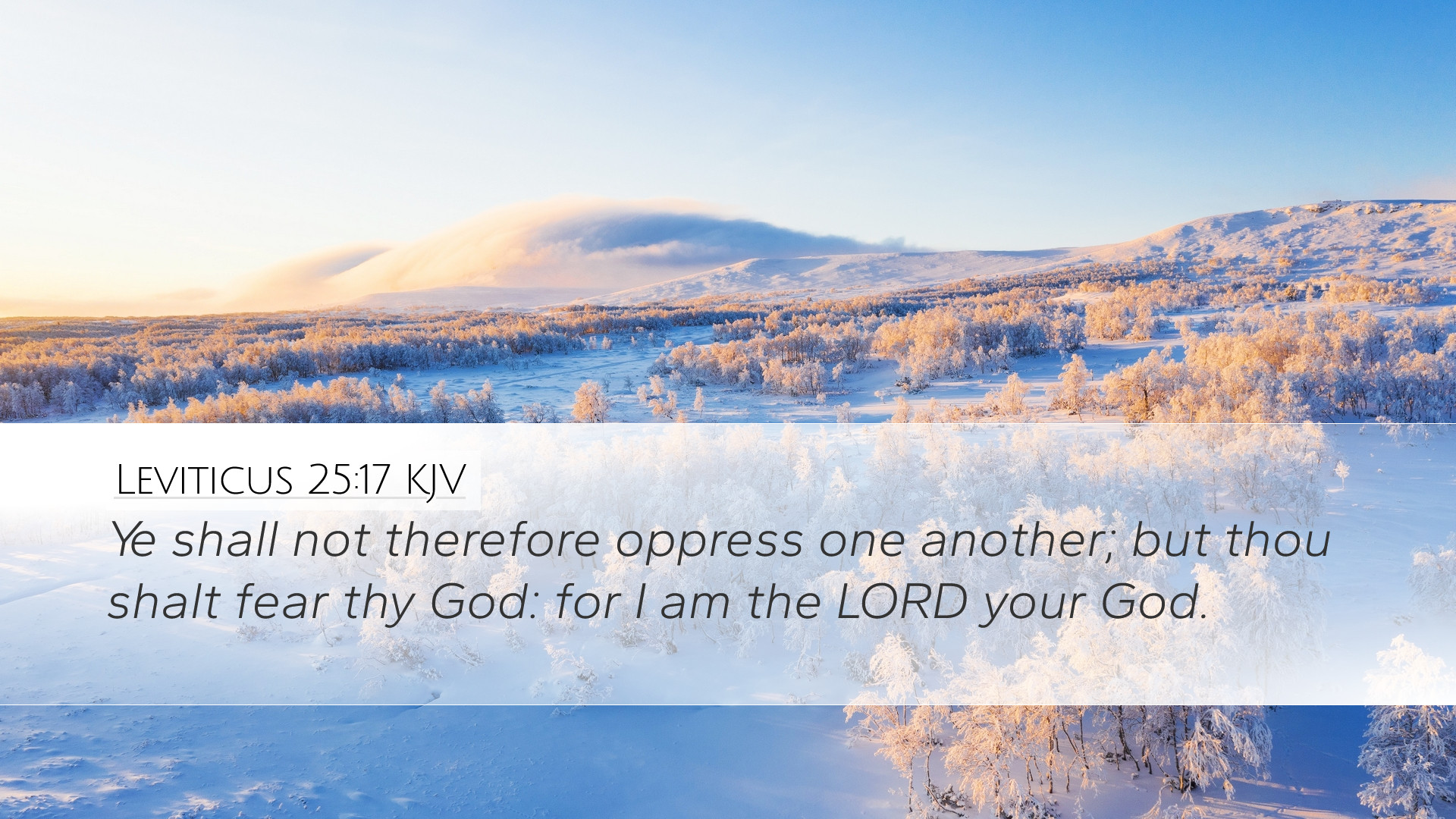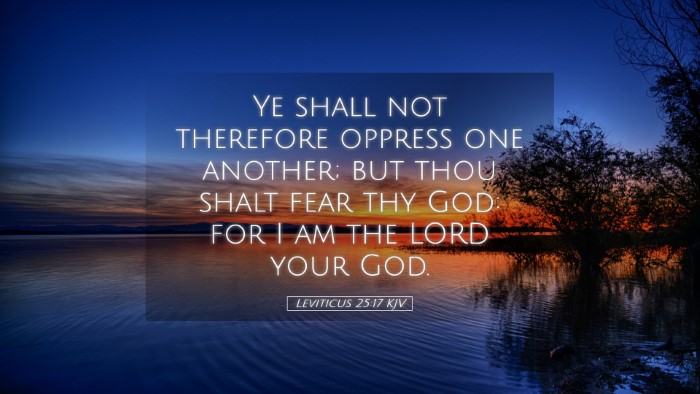Commentary on Leviticus 25:17
Leviticus 25:17 states, "You shall not wrong one another, but you shall fear your God, for I am the LORD your God." This verse is situated within the framework of God’s instructions for a just and holy society. It encapsulates key principles regarding human relationships and divine governance.
Context and Historical Background
In the setting of ancient Israel, the people were called to live in accordance with a covenant that emphasized both moral and social justice. The laws of the Jubilee, which are paramount in this chapter, reflect God’s concern for the wellbeing of His people and the maintenance of equity among them.
Moral Imperative
Matthew Henry emphasizes that the command to not wrong one another is a reflection of the overarching law of love that governs human interaction. The Israelites are admonished to conduct their affairs with sincerity and integrity, ensuring that their treatment of one another mirrors the just character of God Himself.
The Fear of God
This verse ties the ethical treatment of individuals to the fear of God. Albert Barnes elucidates that a proper fear of God fosters an environment of respect and accountability. God’s omniscience should compel individuals to act righteously toward each other, aware that their actions are observed by the Divine.
Theological Implications
Leviticus 25:17 serves not only as a societal commandment but also has profound theological implications:
- Divine Authority: The phrase "for I am the LORD your God" establishes God’s authority over moral law. Adam Clarke notes that God defines the parameters of justice, implying that human judgment is secondary to divine will.
- Social Responsibility: The interrelation of communal life is underlined. The laws given were not merely ceremonial but intended to foster community harmony. Every citizen's duty was respected as vital to the fabric of the nation.
- Covenantal Relationship: The call to fear God is deeply rooted in the covenant relationship established between God and Israel. This fear is one of reverence and awe, leading to obedience and ethical conduct.
Practical Application for Today
Pastors and theologians can view Leviticus 25:17 as a guiding principle for church governance and community relations. The essence of this command is relevant to contemporary issues of justice, equality, and ethical conduct in society.
Application in Leadership
Church leaders are called to ensure that their congregations reflect God’s justice as outlined in Scripture. This involves:
- Promoting Fairness: Emphasizing fair treatment of all individuals, thus modeling God’s character.
- Encouraging Accountability: Reminding members that they are accountable to God in their dealings with each other.
- Advocating for the Marginalized: Taking an active role in uplifting those who may be oppressed or mistreated.
Reflection on Personal Conduct
For believers, this verse calls for self-examination regarding how one treats others. Engaging in acts of love and justice out of reverence for God leads to a fulfilling community life. Each person is challenged to consider:
- Relationship Dynamics: How do interpersonal relationships reflect the fear of God?
- Integrity in Dealings: Are actions and words aligned with Scripture?
- Responsibility Toward Others: Am I contributing to the betterment of my community?
Conclusion
Leviticus 25:17 is a potent reminder that the ethical conduct of individuals is fundamentally linked to their relationship with God. The ancient precepts hold relevance today, inviting continuous reflection on how believers embody justice and love in their daily lives. By adhering to these divine instructions, a path to a more equitable and godly society can be realized.


